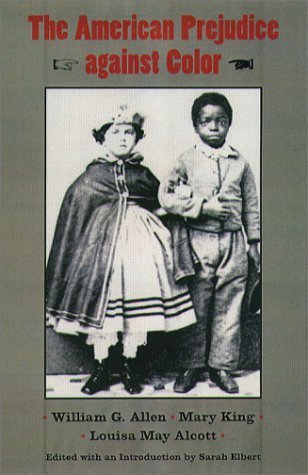The Libertine Colony: Creolization in the Early French CaribbeanPosted in Books, Caribbean/Latin America, History, Literary/Artistic Criticism, Media Archive, Monographs, Slavery on 2009-11-24 20:37Z by Steven |
The Libertine Colony: Creolization in the Early French Caribbean
Duke University Press
May 2005
408 pages
19 b&w photographs
Cloth ISBN: 0-8223-3453-4, ISBN13 978-0-8223-3453-8
Paperback ISBN: 0-8223-3465-8, ISBN13 978-0-8223-3465-1
Doris Garraway, Associate Professor of French
Northwestern University
Presenting incisive original readings of French writing about the Caribbean from the inception of colonization in the 1640s until the onset of the Haitian Revolution in the 1790s, Doris Garraway sheds new light on a significant chapter in French colonial history. At the same time, she makes a pathbreaking contribution to the study of the cultural contact, creolization, and social transformation that resulted in one of the most profitable yet brutal slave societies in history. Garraway’s readings highlight how French colonial writers characterized the Caribbean as a space of spiritual, social, and moral depravity. While tracing this critique in colonial accounts of Island Carib cultures, piracy, spirit beliefs, slavery, miscegenation, and incest, Garraway develops a theory of “the libertine colony.” She argues that desire and sexuality were fundamental to practices of domination, laws of exclusion, and constructions of race in the slave societies of the colonial French Caribbean.
Among the texts Garraway analyzes are missionary histories by Jean-Baptiste Du Tertre, Raymond Breton, and Jean-Baptiste Labat; narratives of adventure and transgression written by pirates and others outside the official civil and religious power structures; travel accounts; treatises on slavery and colonial administration in Saint-Domingue; the first colonial novel written in French; and the earliest linguistic description of the native Carib language. Garraway also analyzes legislation—including the Code noir—that codified slavery and other racialized power relations. The Libertine Colony is both a rich cultural history of creolization as revealed in Francophone colonial literature and an important contribution to theoretical arguments about how literary critics and historians should approach colonial discourse and cultural representations of slave societies.
Table of Contents
- Illustrations
- Preface
- Introduction: Creolizaton in the Old Regime Chapter One: Border of Violence, Border fo Desire: The French and the Island Caribs
- Chapter Two: Domestication and the White Noble Savage
- Chapter Three: Creolization and the Spirit World: Demons, Violence, and the Body
- Chapter Four: The Libertine Colony: Desire, Miscegenation, and the Law
- Chapter Five: Race, Reproduction, and Family Romance in Saint-Domingue
- Conclusion
- Notes
- Works Cited
- Index








